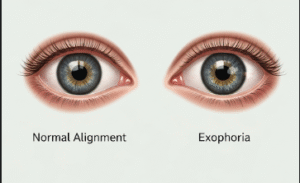Overview
Chorea is a neurological disorder characterized by involuntary, rapid, and irregular movements that can affect the face, limbs, and trunk. In Korea, specialized neurology and movement disorder centers provide diagnosis, medical management, and supportive care to minimize symptoms and improve quality of life.
What is Chorea?
Chorea is a movement disorder caused by dysfunction in the basal ganglia, the brain region that controls voluntary movements. It can be hereditary, acquired, or drug-induced, and the severity ranges from mild, barely noticeable movements to severe, disabling involuntary movements.
Symptoms
- Rapid, jerky, and involuntary movements of the hands, feet, face, or trunk
- Difficulty with speech (dysarthria) and swallowing (dysphagia)
- Impaired coordination and balance
- Behavioral changes such as irritability, depression, or cognitive decline
- Fatigue due to constant involuntary movements
- Motor difficulties affecting daily activities
Causes
- Genetic disorders: Huntington’s disease or other inherited neurodegenerative conditions
- Autoimmune conditions: Sydenham’s chorea following rheumatic fever
- Metabolic or endocrine disorders: Thyroid dysfunction, hypoglycemia
- Drug-induced: Certain antipsychotics or anti-seizure medications
- Vascular or infectious causes: Stroke or infections affecting the basal ganglia
Risk Factors
- Family history of hereditary chorea disorders
- History of rheumatic fever in childhood
- Autoimmune conditions affecting the nervous system
- Certain medications that influence dopamine pathways in the brain
- Metabolic or hormonal imbalances
Complications
- Difficulty performing daily tasks and maintaining independence
- Risk of falls and injury due to impaired coordination
- Emotional and psychological impact, including depression and social isolation
- Speech and swallowing difficulties leading to nutritional problems
- Long-term disability in severe or progressive cases
Prevention
- Early treatment of rheumatic fever to prevent Sydenham’s chorea
- Genetic counseling for families with hereditary chorea
- Careful monitoring and dose adjustment of medications that may trigger chorea
- Management of metabolic and endocrine disorders to prevent neurological complications
Treatment Options in Korea
Treatment focuses on symptom management, addressing underlying causes, and supportive care:
- Medications:
- Dopamine-depleting agents (e.g., tetrabenazine) for movement control
- Antipsychotic medications for severe or distressing movements
- Anti-seizure medications if chorea is linked to metabolic or neurological conditions
- Therapies:
- Physical therapy to improve coordination and prevent falls
- Occupational therapy to aid daily functioning
- Speech therapy for dysarthria and swallowing difficulties
- Specialized centers in Korea:
- Seoul National University Hospital Neurology Department
- Samsung Medical Center Movement Disorder Clinic
- Asan Medical Center, Severance Hospital Neurology Units
- Multidisciplinary teams including neurologists, therapists, and psychologists
- Follow-up care:
- Regular neurological assessments to monitor disease progression
- Ongoing therapy to maintain mobility and functional independence
- Psychological support for children and adults with chronic chorea













